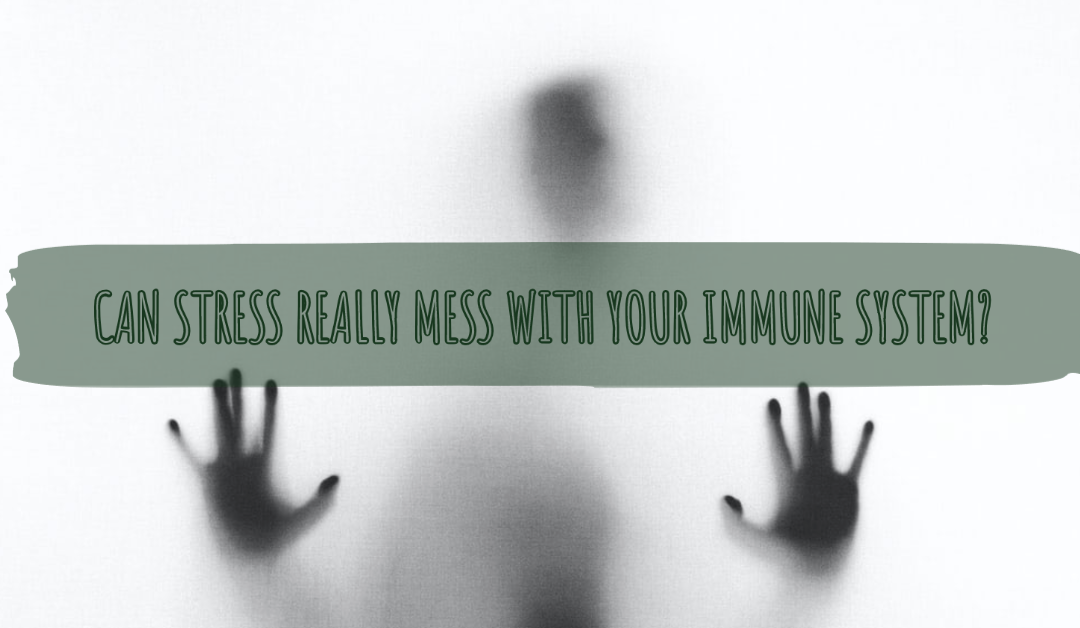While the challenges of today vary from person to person, I think we can all agree that our collective stress level has reached a fever pitch. You may have heard of a hormone that often accompanies that stress; it is called cortisol. Whenever I mention cortisol to a patient, they always grab their belly and say, “Oh I have plenty of that!” But, the purpose of cortisol is not only to make you fat, it has many useful jobs in the body. For example, in small amounts it is an anti-inflammatory. The challenge we face is that when cortisol, an adrenal hormone, gets produced long term it can create a leaky gut which can compromise your immune system.
Immune system health is largely determined by the state of your gut. There are more than 700 different types of bacteria in the intestines, and the goal is that they all live there in harmony. There are good guys, bad guys, and those that just live there. The good guys make enzymes, digest our food, and create vitamins, amino acids, and fatty acids for us that provide the building blocks for cellular repair. Balanced gut flora maintains and regulates gut health. If you have an inflamed digestive tract you are less capable of fighting off pathogens you come in contact with every day. The gut is considered the first line of defense against bacteria, viruses, fungus, mold, yeast and parasites that are present in the intestines. By maintaining a strong and resilient gut lining and digestive system, the chemicals, harmful substances, and microbes stay in the intestine and are neutralized and the good stuff like amino acids, fatty acids, vitamins and minerals gets transferred to the blood stream. This process can be disrupted when the body is exposed to prolonged cortisol output.
Cortisol has multiple actions in the body. Short term it serves as your essential “fight or flight” response, while long term it can be destructive instead of useful. If the brain thinks you are running from a bear it wants to make sure that you have enough energy to run both far enough and fast enough to not get eaten! Short term that makes a lot of sense, however if you are under that stress for longer periods of time, such as an extended leave from work, homeschooling your children unexpectedly, or caring for a sick family member the adrenals can get stuck in high output mode and the normally anti-inflammatory action of cortisol becomes the opposite; an inflammatory reaction. If left unresolved, this inflammatory state can also create catabolism in the body, which means that muscle is being broken down instead of built up. Too much catabolism leads to a weakening of the integrity of the intestinal lining, which is only one cell thick to begin with.
The lining of the intestinal tract is replaced every 5 to 7 days, with old cells dying and new ones taking their place to maintain the healthy barrier between the intestines and the blood stream. When cortisol is chronically elevated, the body prioritizes running from the bear over repairing the gut lining. It doesn’t really matter if you have a healthy gut lining if the bear catches you! However, chronically delaying those repairs leads to trouble and we end up with a leaky gut lining and a compromised immune system. A leaky gut allows harmful contents of the intestine to be absorbed into the blood stream through the damaged single cell lining. When toxins, viruses, bacteria and undigested food transfer through the gut lining into the blood stream, an immune response occurs and this creates an inflammatory reaction. The body is super smart and recognizes when foreign material enters the blood stream. An alarm goes off and you can get a host of symptoms such as allergies, hives, pain and swelling. In addition to allergies to environmental toxins and foods, infections and autoimmune conditions can occur over time. By reducing our stress response, we allow our gut to repair thus restoring our intestinal lining and supporting our immune system.
It is super important that your immune system be an uppermost priority for you at this time. You should be eating well, managing your stress response, and getting enough rest. If you find yourself struggling with chronic stress, poor digestion, or frequent infections your body may need additional support. If you need help, don’t wait! Seek out support and information to help you be the healthiest version of you!

